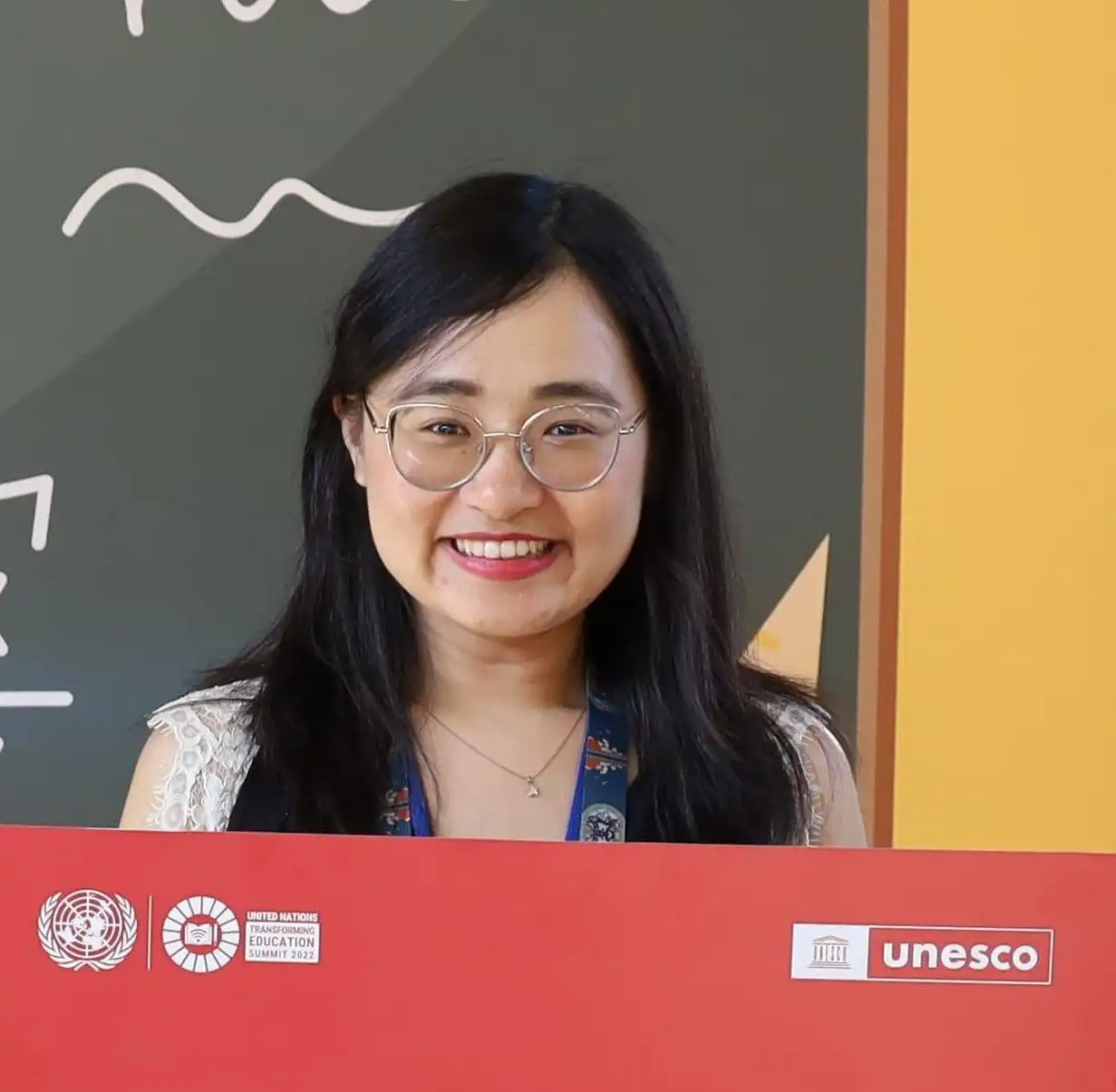Home>Fangzhou, Associate Web Officer, UNESCO’s International Institute for Educational Planning (IIEP)
11.10.2023
Fangzhou, Associate Web Officer, UNESCO’s International Institute for Educational Planning (IIEP)

Coming from China, Fangzhou Liang graduated in 2016 in International Public Management (now International Governance and Diplomacy), with concentrations on Migration and China and East Asia.
Fangzhou is an Associate Web Officer at Paris at UNESCO’s International Institute for Educational Planning (IIEP).
What are your main responsibilities?
In my current role, I manage IIEP’s global social media accounts (Facebook, Twitter, LinkedIn and YouTube). I also contribute to the production and dissemination of various communication contents - this can range from updating our website, creating visuals, infographics and videos, curating our newsletters, to spearheading a digital communications campaign. Finally, I play a key role in event organization, from setting up multilingual registration forms, promoting the event, ensuring a seamless and appealing event experience, to the broadcasting of post-event surveys and follow-up messages to collect data required for internal reporting. I very much enjoy working with my team. It is not a big team but colleagues are very supportive and hardworking.
If I am to list the most important skills required for my job, the following comes to mind: creativity, attention to detail, organization skills (including organizing your own time) and the ability to perform under pressure!
How did you prepare for this job?
I applied for it and got selected (the application process included CV/application form screening, then a bilingual written test - English and French, followed by a bilingual interview.)
Indeed, a lot of junior career opportunities in international organizations may come from internal referrals; but one’s own initiative also matters. I started my journey via an internship at OECD’s Education Directorate for Education and Skills - I learned about the vacancy via an email broadcast to all students in my master’s programme. The experience at OECD earned me a sponsored traineeship at UNESCO selected by the Chinese government after graduation, and it was during this traineeship at the UNESCO Institute for Lifelong Learning (UIL) that I was assigned to - and discovered my interest and talent in communications. Before making it back to UNESCO and Paris, I persevered in different international organizations as intern, trainee, and short-term staff, accumulating experience in different areas of communications and themes. I probably applied for more than 20 UNESCO jobs and finally, there was this one success!
What is the most fascinating part of your job?
I became colleagues with one of my favorite teachers at PSIA - Dr Beatriz Pont who taught me “Comparative Education Policy”, is IIEP’s Global Training Practice Lead. It was such an excitement to reconnect with her in a new identity after all these years!
Otherwise, what I really appreciate is the resilience of my colleagues. Amid the COVID-19 pandemic, there was a period of transition in the Institute. Despite uncertainty, colleagues remained diligent and devoted, and the quality of work delivered was simply amazing. IIEP maintained its high reputation, which made me very, very proud as its staff.
How did your PSIA experience contribute to the position you hold today?
As I stated in my answer above, my PSIA experience, especially the OECD internship in my 3rd semester (which I also learned about from PSIA), laid some significant foundation for where I stand today. The interdisciplinary training, I received at PSIA was a comprehensive, solid base for my career in international organizations: how to break down any issue in international affairs, how to look for data and evidence to form your analysis - this has been the background of my day-to-day work over the years. Sometimes at work, it feels like re-living our “Grand-Oral”, where you are given a random topic and asked to do a full debate about it in public without much time to prepare! Thanks to PSIA, it’s not that scary.
One class that left me with the deepest impression was “Cultural Intelligence and Self-awareness - Understanding Diversity and Cross-cultural Management”. The soft skills I learned from it are still helping me today to navigate the very delicate, but also extremely interesting intercultural professional setting that surrounds me.
What advice would you give to current students?
Be open-minded - especially for students like me who come from a very different cultural background. Congratulations on making it to PSIA and to Paris; please make the best out of it. Don’t be afraid to break existing stereotypes and expectations. Meanwhile, never give up.
Information Sessions: Masters

Find out more about the Masters programs and the wide choice of specialisations offered by the 8 Schools of Sciences Po during our webinars dedicated to applicants.